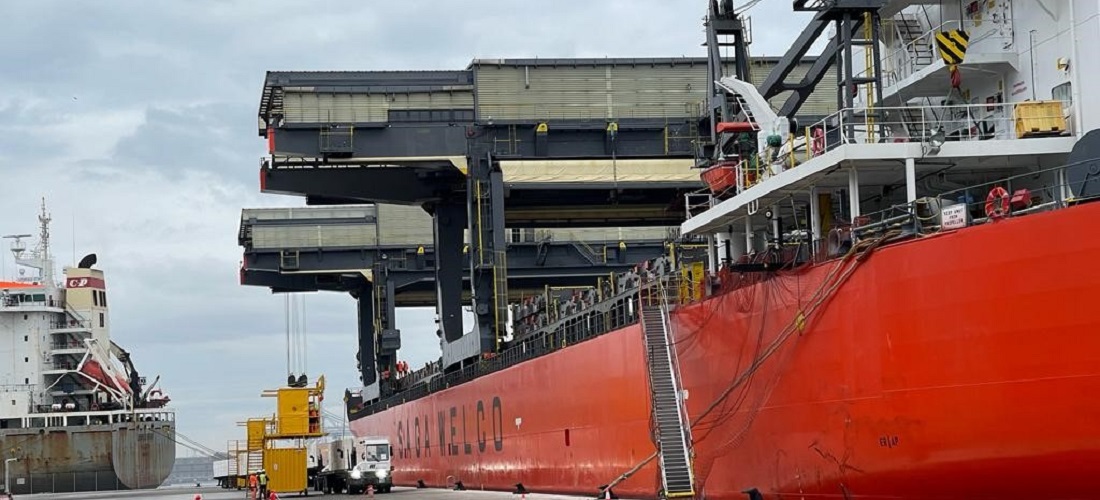
Argentine port federation rejects dredging at Port of Montevideo
Feb, 14, 2024 Posted by Gabriel MalheirosWeek 202407
The Argentine Federation of Port and Naval Industry (Fempinra) rejected, this Saturday, the approval by the Administrative Commission of the River Plate (CARP) of the dredging and deepening of the access channel to the Uruguayan port of Montevideo to 14 meters, arguing that this would disadvantage the port of Buenos Aires.
Additionally, the union, under the leadership of Juan Carlos Schmid, emphasized that “this mistake is compounded by the initiative of the government of the Province of Buenos Aires in favor of the port of La Plata, resulting in the closure of the only federal port, Port B.” “This approval by Argentina is not unprecedented, we could say it is historic, unfortunately,” said Schmid in a statement.
The secretary-general of the Dredging and Beaconing Union also highlighted that this decision underscores an “absence of foreign policy in the La Plata Basin” by Argentina. “It is not a problem for Uruguay to request approval for 14 meters for its main port. In fact, we should not oppose investment and improvement in neighboring countries’ logistical structures. The crux of the problem is that Argentina has done nothing for 25 years, either out of ignorance or hidden interests,” emphasized the union leader.
Celebration in Uruguay and Questions in Argentina
Schmid pointed out that Argentina has “the largest navigable waterway on the continent with an expired concession, which demonstrated efficiency and successes in its bidding terms and conditions, which, certainly, due to the experience gained, should be improved in a new tender.” “This mistake is compounded by the initiative of the government of the Province of Buenos Aires in favor of the port of La Plata, resulting in the closure of the only federal port, the Port of Buenos Aires,” he emphasized.
Days ago, the Argentine Ministry of Foreign Affairs confirmed the approval of Uruguay’s request for dredging from 13 to 14 meters in the port of Montevideo, emphasizing that this was “possible thanks to joint technical work” carried out by the delegations of the two countries, “based on a faithful observance of the Treaty of the River Plate and its Maritime Boundary, which preserve the minimum and indispensable requirements to ensure navigation safety in the region.”
The Argentine government argued that “projects presented in common use waters, under art. 17 and following of the Treaty, receive an agile and expeditious evaluation, within the framework of strengthening friendship, cooperation, and integration between both countries,” proposing “the drafting of a protocol or mechanism to streamline the analysis procedures of this type of project within the Commission.”
In turn, the Uruguayan government celebrated it as “a matter of absolute relevance” and emphasized that it was “an objective that was an express priority of the current government of Luis Lacalle Pou,” as “a great step to continue developing our port system as a regional logistics hub, and as an exit point for products from a wide region, in an achievement that will benefit the entire La Plata River basin and the Paraná-Paraguay waterway.”
Fempinra warned that with this decision by Argentina, “the port of Buenos Aires is at a disadvantage compared to its counterpart in Montevideo in the competition to become the regional hub, making it considerably more likely that shipping companies will end their route at Uruguay’s main port.”
Source: Ámbito
Click here to read the original text in Spanish: https://www.ambito.com/uruguay/la-federacion-maritima-portuaria-argentina-rechazo-la-profundizacion-del-puerto-montevideo-n5943105
-
Steel and Aluminium
Sep, 20, 2023
0
Brazilian government approves early end to reduced import tariffs on 12 steel products
-
Ports and Terminals
Aug, 27, 2024
0
ANTAQ Approves Bidding Documents for STS08 Terminal at Port of Santos
-
Coffee
May, 12, 2020
0
Robusta coffee exports increase by 30% in April YoY
-
Ports and Terminals
May, 28, 2020
0
CDRJ reactives North Channel which links to Itaguaí Port

